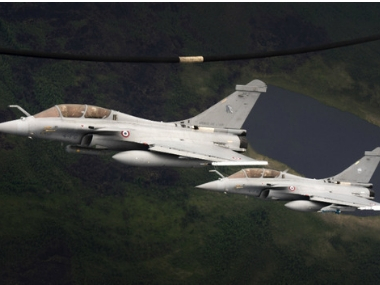There will, most certainly, be collateral damage in the political war raging over Rafale—biggest casualty will be the Indian Air Force, its resources already depleted to near-breaking point. The IAF proposal to buy MiG-29s from Russia, made from incomplete hulks fabricated in the 1980s, reflects the seriousness of its capability erosion. This is music to the ears of India’s adversaries. Air Chief Marshal BS Dhanoa has voiced a warrior’s anguish when he argues that while he will optimally exploit what he has, he doesn’t have enough to concurrently secure the nation’s frontiers, protect its interests and expand its influence in pursuit of its objective of emerging as a power of consequence. The Rafale fallout has led some to argue that defence and security issues should be separated from politics. This argument in fact stands the problem on its head. We must stop politicising national security issues but, more than ever, we need a political establishment that understands war and the elements of the instruments of force. Politics of national security The suggestion that we isolate defence and security issues from the rough and tumble of politics—made recently, among others, by former defence secretary G Mohan Kumar—illustrates the complete disconnect between the establishment and the defence needs of a mature democracy. The argument is a well-known one: these are, proponents say “not matters to be discussed openly in the streets or subjected to the glare and searing heat of media debates”. But defence and security decision-making structures can only evolve from an informed and decisive political direction that comes from the presence of a bipartisan constituency of politicians who take the lead in creating and running a strong strategic and security establishment. Their mandate must also include sensitising citizens by engaging in meaningful debates in Parliament. These discussions must also be informed by public debate, conducted through media and academia. Embedded within this political structure must also be adequate checks and balances through oversight committees and ombudspersons to prevent corruption, brinkmanship and centralised decision-making. Put simply, India’s defence is too serious a business to be left to bureaucrats. It cannot be conducted without a political system capable of guiding its course. [caption id=“attachment_5321141” align=“alignleft” width=“380”] Representational image. Reuters[/caption] A multi-domain structure When was the last time we heard a serious debate in Parliament on the challenges that China poses or on the resolution of the impasse between India and Pakistan on the Line of Control? Or, on what ails our defence manufacturing and innovation industry or reverse engineering capability? As global interest in India’s security challenges grow, ideas on streamlining and restructuring organs of national security should be discussed seriously. However, introspection by leading political parties, looking at matters of security as a national mission, and not point-scoring, has been conspicuous by its absence. On paper, there are already structures in place to enable multi-domain discussions, involving practitioners, technocrats, academics and information specialists—for example, the National Security Council, its associated secretariat and the National Security Advisory Board (NSAB). However, they operate suboptimally because of the reluctance of a powerful bureaucracy and a comfortably cocooned military to open the management and direction of ‘defense and security’—to make it inclusive and knowledge-centric rather than power-centric and obsessively secretive. Body blow to synergy For these reasons, I find arguments for delinking defence and security from politics as regressive and unmindful of the complicated geopolitical and security environment we live in. The current system enables the creation of fiefs designed for pursuit of power rather than synergy and interoperability. These fiefs will come in the way of efforts to improve integration within the defence ministry and the three services – army, navy, and air force. They will also stall progress in creating synergies between intelligence agencies and the structures associated with external and internal security. Parliament and defence My prognosis involves clearing the cobwebs that have ensnared acquisition of platforms and weapon systems, the creation of a vibrant indigenous defence manufacturing ecosystem, restructuring of higher defence organisation and improving coordination between various stakeholders of national security. It is my belief that the next step that India needs to take to punch its weight in the international arena—after alleviating poverty and raising its Human Development Index—is to usher in a bipartisan political approach to national security that embraces intellectual capital and conveys intent and consistency. Once that happens, India will be on track to emerge as a leading power and not merely a power with promise and potential. That Rafale has become a tool for political skulduggery reflects the lack of substance within the current political debate ahead of the general election. But, it also underlines the need for a bipartisan approach on defence and security matters. The author is a retired air vice-marshal, a military historian and a strategic commentator
The suggestion that we isolate defence and security issues from the rough and tumble of politics illustrates the complete disconnect between the establishment and the defence needs of a mature democracy
Advertisement
End of Article


)

)
)
)
)
)
)
)
)



